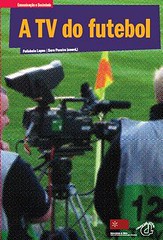Retratos de um outro mundo. Vale a pena ler hoje no "The New York Times" o artigo "Behind the Great Divide", , de Paul Krugman, uma explicação para a diferença de posições entre as opiniões públicas dos países europeus e das norte-americanas. A questão, para o autor, está no fosso que separa as notícias a que um lado e outro do Atlântico têm acesso. Eis alguns extractos: "(...) Most people, though, get their news from TV — and there the difference is immense. The coverage of Saturday's antiwar rallies was a reminder of the extent to which U.S. cable news, in particular, seems to be reporting about a different planet than the one covered by foreign media. What would someone watching cable news have seen? On Saturday, news anchors on Fox described the demonstrators in New York as "the usual protesters" or "serial protesters." (...) Europeans, who don't see the same things on TV, are far more inclined to wonder why Iraq — rather than North Korea, or for that matter Al Qaeda — has become the focus of U.S. policy. That's why so many of them question American motives, suspecting that it's all about oil or that the administration is simply picking on a convenient enemy it knows it can defeat. They don't see opposition to an Iraq war as cowardice; they see it as courage, a matter of standing up to the bullying Bush administration. (...) There are two possible explanations for the great trans-Atlantic media divide. One is that European media have a pervasive anti-American bias that leads them to distort the news, even in countries like the U.K. where the leaders of both major parties are pro-Bush and support an attack on Iraq. The other is that some U.S. media outlets — operating in an environment in which anyone who questions the administration's foreign policy is accused of being unpatriotic — have taken it as their assignment to sell the war, not to present a mix of information that might call the justification for war into question. So which is it? I've reported, you decide".
Quem somos
» Manuel Pinto» Helena Sousa
» Luis Antonio Santos
» Joaquim Fidalgo
» Felisbela Lopes
» Madalena Oliveira
» Sara Moutinho
» Daniela Bertocchi
» Sergio Denicoli
Últimos posts
» Porque "bloga" o Google?. Comentando ontem a aquis...» Visita ao Museu da Imprensa. Queres ocupar as tard...
» Leo Bogart e os leitores jovens. Esta é uma peça s...
» “Os Simpsons” chega ao nº 300. Um texto de Steve ...
» Dave Winer, considerado o mais antigo blogger aind...
» Castells e a sociedade em rede. Uma boa notícia: ...
» Desemprego de Jornalistas. O número de jornalistas...
» "O lugar da catarse" . É o título da coluna da Pro...
» Google compra Pyra e Blogger.com– Segundo anuncio...
» Serei eu que estou a ver mal as coisas ou os Estad...
Ligações
-
» Aula de Jornalismo
» Atrium-Media e Cidadania
» Jornalismo Digital
» Ponto Media
» ContraFactos e Argumentos
» JornalismoPortoNet
» Irreal TV
» Indústrias Culturais
» Blogouve-se
» Net FM
» As Imagens e Nós
» Retórica e Persuasão
» Fotojornalismos
» Charme da Bloguesia
» Mas Certamente que Sim
» Sopa de Pedra
» Educomunicação
» Travessias
» A Rádio em Portugal
» Webcom
» A nossa Rádio
» Rádio e Jornalismo
» Engrenagem
» Nós Media
» Observatório da Imprensa
» Blog do Provedor
» Intermezzo
» Jornalismo & Internet
» Midiablog
» Código Aberto
» Ponto de Análises
» Tiscar.com
» First Draft
» e-Periodistas
» Weblog Blog
» Public Journalism Net
» Media Network
» eCuaderno>
» Periodistas 21
» PressThink
» MétaMédias
» Deuze Blog
» Blog Clipping
» MediaTIC
» Le blog des medias
» Le blog TV news
» The OmbudsGod
» E-Media Tidbits
» Romenesko
» Dan Gillmor
» Editors Weblog
» Is Journalism dead?
» JP Cloutier
» Des Gadgets aux Réseaux
» Periodismo Global
» Comunicacion Politica
» Comunisfera
» Loïc le Meur
» D. Schneidermann
Arquivos
» abril 2002» maio 2002
» junho 2002
» julho 2002
» agosto 2002
» setembro 2002
» outubro 2002
» novembro 2002
» dezembro 2002
» janeiro 2003
» fevereiro 2003
» março 2003
» abril 2003
» maio 2003
» junho 2003
» julho 2003
» agosto 2003
» setembro 2003
» outubro 2003
» novembro 2003
» dezembro 2003
» janeiro 2004
» fevereiro 2004
» março 2004
» abril 2004
» maio 2004
» junho 2004
» julho 2004
» agosto 2004
» setembro 2004
» outubro 2004
» novembro 2004
» dezembro 2004
» janeiro 2005
» fevereiro 2005
» março 2005
» abril 2005
» maio 2005
» junho 2005
» julho 2005
» agosto 2005
» setembro 2005
» outubro 2005
» novembro 2005
» dezembro 2005
» janeiro 2006
» fevereiro 2006
» março 2006
» abril 2006
» maio 2006
» junho 2006
» julho 2006
» agosto 2006
» setembro 2006
» outubro 2006
» novembro 2006
» dezembro 2006
» janeiro 2007
Livros


» Felisbela Lopes e Sara pereira (orgs) A TV do Futebol; Porto: Campo das Letras
» Televisão e cidadania. Contributos para o debate sobre o serviço público. Manuel Pinto (coord.), Helena Sousa, Joaquim Fidalgo, Helena Gonçalves, Felisbela Lopes, Helena Pires, Luis António Santos. 2ª edição, aumentada, Maio de 2005. Colecção Comunicação e Sociedade. Campo das Letras Editores.
» Weblogs - Diário de Bordo. António Granado, Elisabete Barbosa. Porto Editora. Colecção: Comunicação. Última Edição: Fevereiro de 2004.
» Em nome do leitor. As colunas do provedor do "Público". Joaquim Fidalgo. Coimbra: Ed. Minerva. 2004
» Outras publicações do CECS
Eventos
» Conferência: A Nova Entidade Reguladora no quadro das políticas de Comunicação em Portugal (2006)» I Congresso Internacional sobre Comunicação e Lusofonia (2005)
» Jornadas ?Dez Anos de Jornalismo Digital em Portugal: Estado da Arte e Cenários Futuros? (2005)
» Todos os eventos
0 resposta(s) para “”
Responder